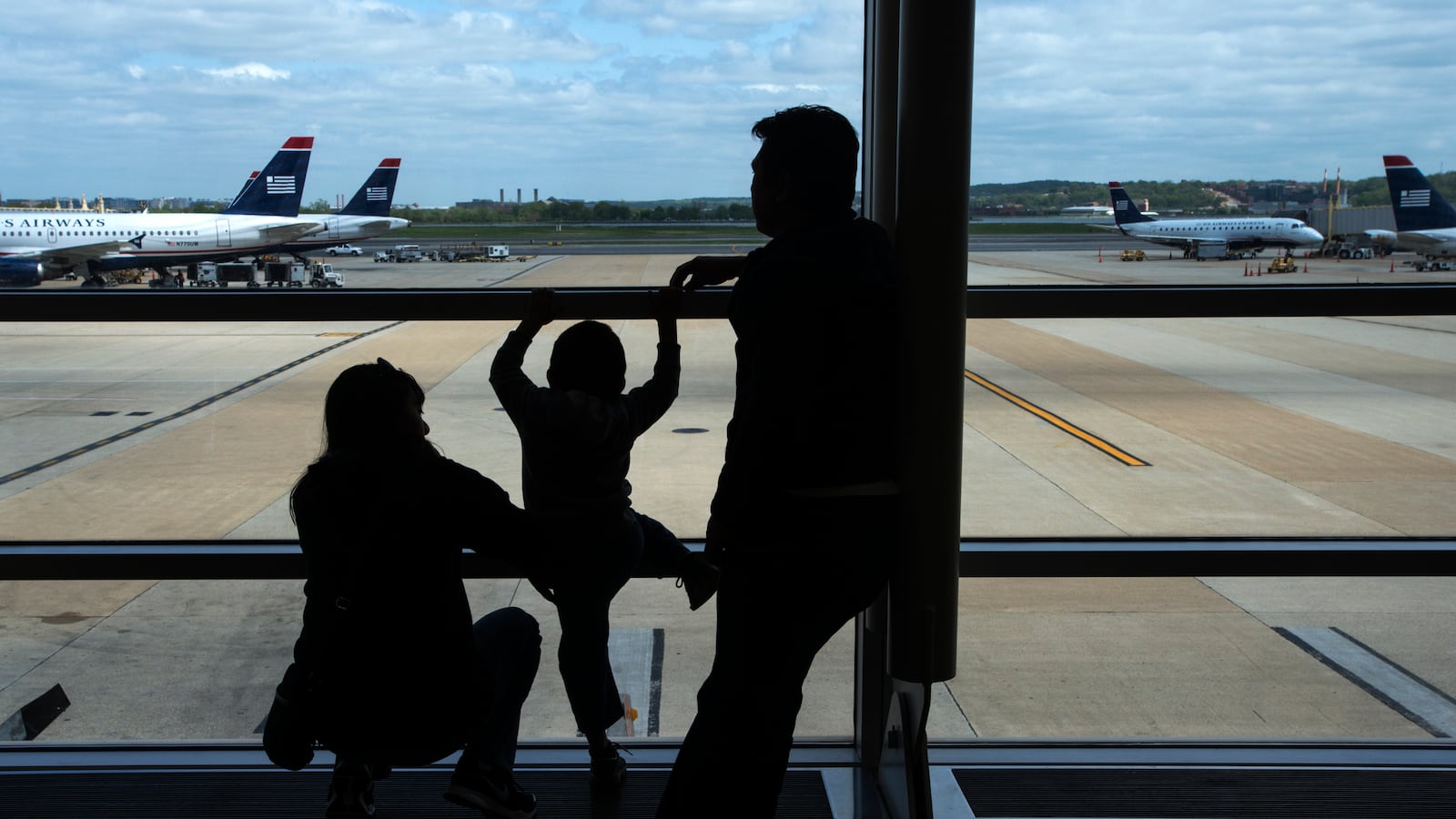The sequester story has now been grounded, perhaps indefinitely.

You remember the sequester, that ticking time bomb that was set to explode as part of the dreaded fiscal cliff. It was a classic Washington drama—relentlessly hyped, obviously artificial—and both parties were determined to avoid a plunge into the abyss.
But after that New Year’s Day compromise that involved a hike for the richest taxpayers, the sequester—$85 billion in automatic budget cuts that were once deemed so drastic as to be unthinkable—went into effect on March 1. And promptly vanished from the media radar.
That is, until delays started mounting at the nation’s airports and Congress panicked. Lawmakers practically broke the sound barrier in racing to pass legislation giving the FAA authority to shift money and end the furloughs of air traffic controllers.

That story instantly gained altitude for several reasons. The stampede to undo just one small part of the sequester that directly affected members of Congress, who fly home every weekend, was irresistible. The tide of public anger at the stupidity of the situation packed an additional wallop (and it’s not hard to send an Action News reporter to the local airport and find ticked-off customers facing two-hour delays).
Plus, journalists hop on planes quite a bit, and they were among those affected, as you could tell from angry tweets about being stranded at La Guardia or National.
But now that America’s high-flying class will no longer be inconvenienced—beyond the usual weather delays and lousy service—the sequester story is quickly petering out.
Sure, the skirmish raised the level of political rhetoric. “Maybe because they fly home each weekend, the members of Congress who insisted these cuts take hold finally realized that they actually apply to them too,” President Obama said in his weekend radio and online address. But he said, “these cuts are scheduled to keep falling across other parts of the government that provide vital services for the American people. And we can’t just keep putting Band-Aids on every cut. It’s not a responsible way to govern.”
In the GOP response, Pennsylvania Rep. Bill Shuster said the 15,000 air traffic controllers were furloughed because “there are some in the Obama administration who thought inflicting pain on the public would give the president more leverage to avoid making necessary spending cuts and impose more tax hikes on the American people.”
And that kind of finger-pointing explains why the sequester story will soon fade from the headlines. While there was a crying-wolf aspect when Obama and his aides warned about the apocalyptic consequences of the sequester, they turned out to be right about airline delays—and there’s no evidence the administration manipulated the FAA to exacerbate the effect of the furloughs.
But after two years of budgetary gridlock in Washington, people are sick of hearing about it. Hell, journalists are sick of writing about it. Ordinary folks want to know what impact all the wrangling has on their daily lives, not listen to politicians score points in a never-ending battle.
And that’s precisely the problem: the victims of other sequester cutbacks don’t get much ink. The administration estimates that the elderly will get 4 million fewer Meals on Wheels this year. The Head Start program has been hurt, with critics saying 70,000 children will be excluded, and one center in Georgia recently shut down. HUD will hand out 125,000 fewer rental assistance vouchers, advocates say.
Some outlets have reported on these ripple effects, but they don’t feed into a sexy narrative. And let’s face it, business travelers whose schedules are being disrupted have far more clout than lower-income elderly folks who might be missing a few meals.
On one level, the air traffic fiasco helped dramatize the fact that cutting tens of billions in federal spending has a human impact—and that denying agencies the authority to do anything but slash across the board is especially dumb.
Yet here is Obama again urging Republicans to replace the sequester with smarter cuts and getting no takers. With both sides having caved on the airport front, the pressure is off. And that’s why the sequester story has crashed and burned.




